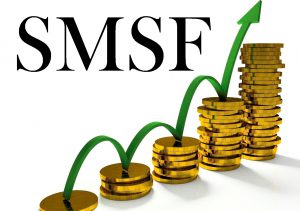
Now is the time for taxpayers to consider their current tax positions to see if there are steps they can take to minimise their tax liability prior to 30 June.
We have outlined below some of the main tax planning ideas that you can consider.
$150,000 instant asset write-off for businesses
The instant asset write-off threshold for businesses increased to $150,000 for the period 12 March 2020 to 30 June 2020 (with a further extension to 31 December 2020 pending the passing of the relevant legislation). See our separate article about the $150,000 instant asset write-off.
Superannuation contributions
The June quarter superannuation guarantee liability is required to be paid by 28 July. However, a business can only claim a tax deduction for employees’ superannuation when it is actually paid. As such, to ensure you get a deduction in the current year, you need pay your employees’ June superannuation guarantee liability prior to 30 June (cashflow permitting). We recommend that the payment be made by 20 June (to ensure it is processed by the recipient superfund).
If you use the ATO’s superannuation clearing house, they have recommended paying no later than 23 June.
Personal superannuation
You may also want to make personal contributions to super. For the 2019/20 financial year, the maximum concessional (deducted) contribution is $25,000.
However, for the 2019/20 financial year, if your superannuation balance was less than $500,000 as at 30 June 2019, it may also be possible for you to take advantage of the new unused concessional cap carry forward rules. Please see our separate article regarding personal superannuation contributions.
Trade debtors
You should review your trade debtors as at 30 June. You must ensure that any debts that are uncollectible are written off prior to 30 June in order to claim a tax deduction for the write-off in the current financial year. This is particularly important given the effect of COVID-19 on many businesses. It is likely that many businesses will have higher bad debts during the 2020 financial year than in prior years.
Prepay or bring forward your expenses
Make sure you review all of your expenses and bring forward any expenses to June (where possible). For example, stock up on stationery and office consumables, prepay your insurance and interest (if applicable) and look at any other expenses you may be able to pay in June. By bringing these expenses forward to June, you are obtaining a tax deduction in the current financial year which will reduce your overall tax bill for the 2020 year. However, depending on the status of your business given the impact of COVID-19, if your business is in a loss position, bringing forward expenses may not be advantageous.
Defer assessable income
Consider whether it is possible to defer the derivation of your assessable income (being mindful of cashflow implications). Again, depending on the effect of COVID-19 on your business, you may want to realise more income in the 2020 financial year to utilise losses from COVID-19. This will vary from business to business.
Motor vehicles
If you are using a vehicle for a high percentage of work-related travel, make sure you keep a logbook. Without a logbook, an individual is limited to claiming a maximum of 5,000km at $0.68 (or $3,400). If you keep a logbook, you can claim the business percentage of the operating costs of the vehicle (petrol, registration, servicing, depreciation, interest etc).
Working from home
If you worked from home during the 2020 financial year (which is very likely during the COVID-19 pandemic), you may be able to claim a deduction for a percentage of the running costs of your home. The ATO have provided a shortcut method for you to calculate the deduction for your operating expenses using a cents per hour calculation:
- $0.52 / hour from 1 July 2019 to 29 February 2020
- $0.80 / hour from 1 March 2020 to 30 June 2020
If you would like to discuss end of year tax planning for your personal situation, please call us on (07) 56656469.
DISCLAIMER: The information in this article is general in nature and is not a substitute for professional advice. Accordingly, neither TJN Accountants nor any member or employee of TJN Accountants accepts any responsibility for any loss, however caused, as a result of reliance on this general information. We recommend that our formal advice be sought before acting in any of the areas. The article is issued as a helpful guide to clients and for their private information. Therefore it should be regarded as confidential and not be made available to any person without our consent,

Jeanette has over 20 years experience as an accountant in public practice. She is a Chartered Accountant, registered tax agent and accredited SMSF Association advisor. When she is not helping business owners grow their empires, you will likely find her out running on the trails or at the gym. Book in to see Jeanette today.




